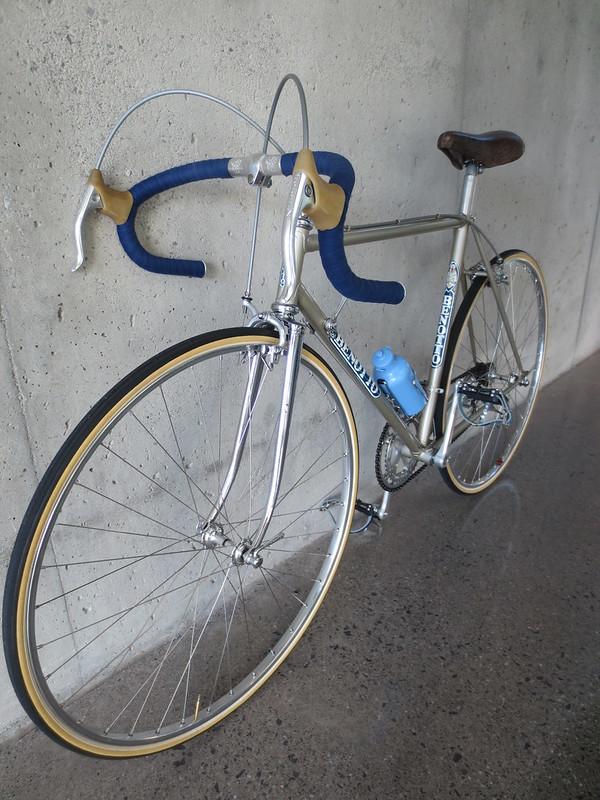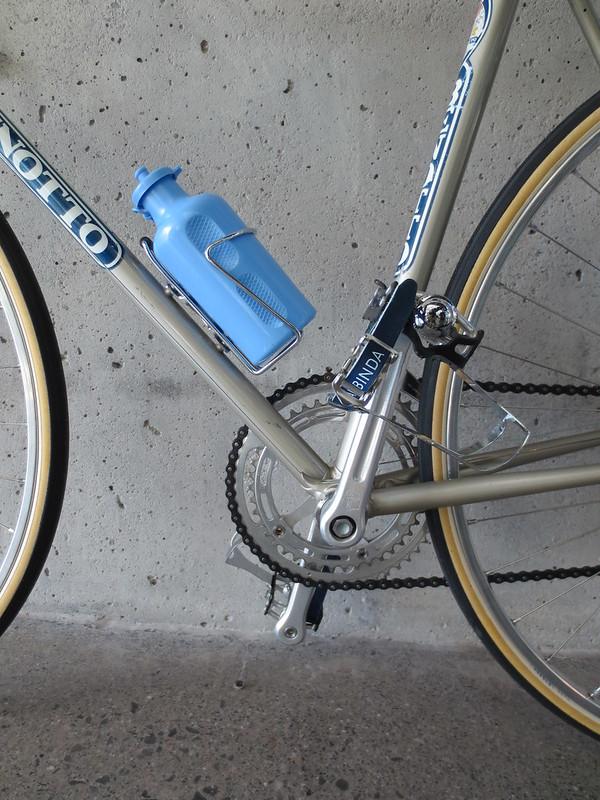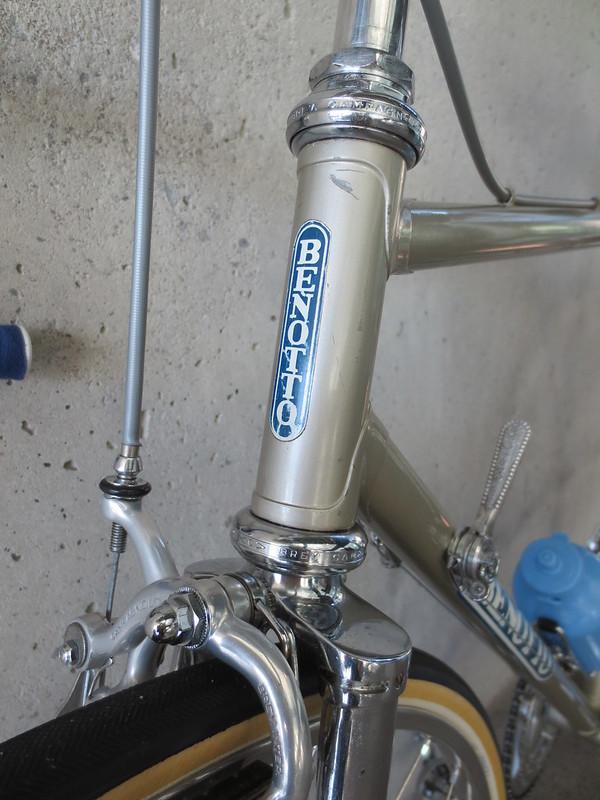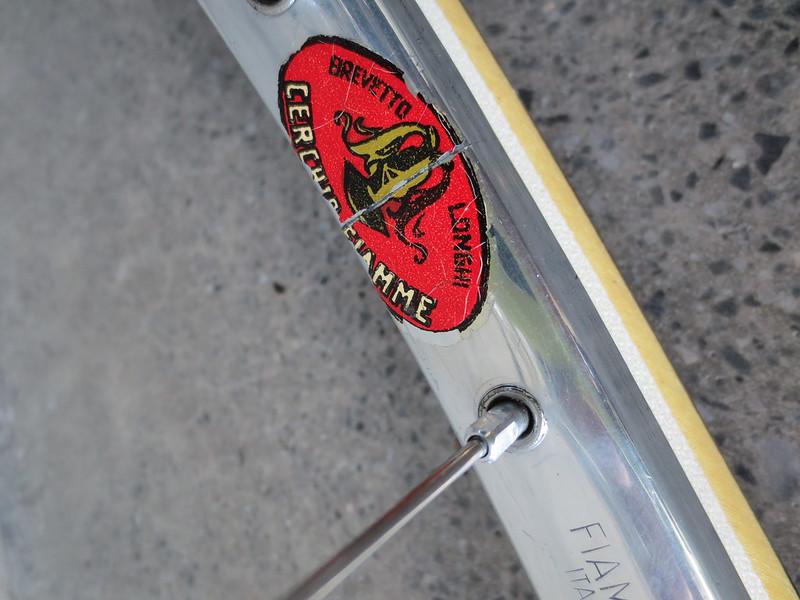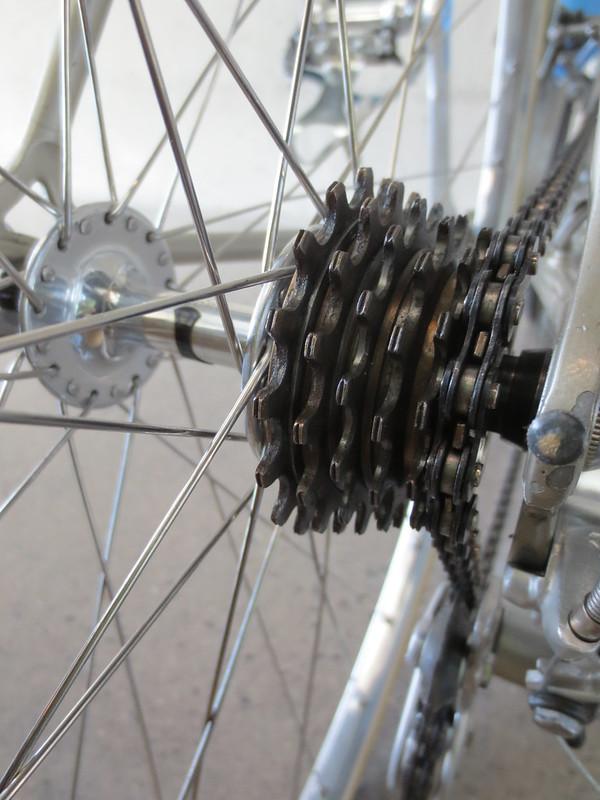Updated: October 3/2021
In 1931, the 24 year old Giacinto Benotto founded Bicicletas Benotto in Torino, Italy, and by 1951 Benotto bicycles appeared in 3 world championships. In 1951, Antonio Belivacqua rode a Benotto to first place in the famous Paris-Roubaix. Benotto bicycles were ridden to many high profile victories, including in the 1977 World Championship (San Cristobal, Venezuela) by Francesco Moser and Milan-San Remo in 1978 by Roger DeVlaeminck. That same year, Moser went on to win the Paris-Roubaix. In 1953, Benotto expanded operations into Mexico and the company split its operations between Italy and Latin America. The high-end Benotto racing bicycles were produced in Torino until 1983/84, whereby all European and Latin American production moved to Mexico, possibly with the exception of the 5000 model. Starting in the late 1940s, Giuseppe Pelà (Torino, Italy) built many of Benotto's top framesets. He also built for Gios in the 1950s and 60s - both Benotto and Gios were/are based in Torino. In addition, Pelà built for many professional cyclists, including Anquetil, Van Loy, Bobbet, and all of Merckx's Faemino team bikes for the 1970 season. Many of Pelà's frameset are distinguished by the unique bottom bracket cutouts, fork crown and associated tangs, and seat stay cap treatment (Losa and Branca framesets share similar treatment). In 1970, Pelà built the earliest Masi Gran Criterium framesets and the seat stay caps changed to the now commonly used "fluted" caps, where a curved piece of tubing is brazed onto the seat stay ends. Filotex was an Italian professional cycling team from 1963 to 1980 with riders such as, Franco Bitossi (1965-72) and Francesco Moser (1973-75). From about 1968 to 1973 the Filotex bikes were made by Felice Branca and carried Filotex decals. However, Benotto took over the sponsorship of the Filotex team for the 1973/74 season. As one would guess, Benotto had their framesets built by their longtime collaborator Giuseppe Pelà, and for the 1974/75 season, at Moser's request, by Ugo De Rosa - it should be mentioned that Pelà retired around this time period. Pelà supposedly gave much of his equipment to Irio Tommasini a compatriot of his form the Maremma region. Tommasini was also one of the few people at Pelà's funeral. THE BIKE Frame: 1973/74 Benotto team Filotex frameset built by Giuseppe Pelà in original champagne color with chrome fork - if frameset was repainted its identity as a once Filotex team bike would have been lost. Tubing not specified, but most likely Columbus SL. Campagnolo dropouts with 1010A long rear dropouts. Original decals and paint are in excellent condition with top tube populated with a few small dents. Braze-ons for water bottle, rear brake cable guides, derailleur down tube shifters, and over the bottom bracket front/rear derailleur cable guides. 54.0 and 52.5 cm (c-to-c) top and seat tubes, respectively. Brakeset: Early 70s Campagnolo Record brake levers with hole, not D-shaped cutouts. Campagnolo Record Calipers with "Patent" center bolt not the earlier "BREV. CAMP". Handlebars: Cinelli Mod. 65 Criterium with double crest. Not as common as other Cinelli bars. Stem: Polished Cinelli 1A alloy stem (11.0 cm c-to-c). Headset: Campagnolo Record with Shifters: Braze-on Campagnolo Record Front Derailleur: Campagnolo Record Rear Derailleur: Campagnolo Nuovo Record dated 1973 Crankset: Campagnolo Record (144 mm bolt circle) dated 1973 Bottom Bracket: Campagnolo Record with thick riffled cups Pedals: Campagnolo Super Record with alloy cages. Fides toe clips and Alfredo Binda straps Wheelset: Campagnolo large flange laced using single-butted DT Swiss spokes Fiamme rims Chain: Sedis Freewheel: 6 speed Regina ORO straight block (12-17) Seatpost: Campagnolo Record Saddle: Cinelli Unicanitor #3 (Buffalo hide) Water bottle/cage: Ale steel cage with Reg ATOX bottle
